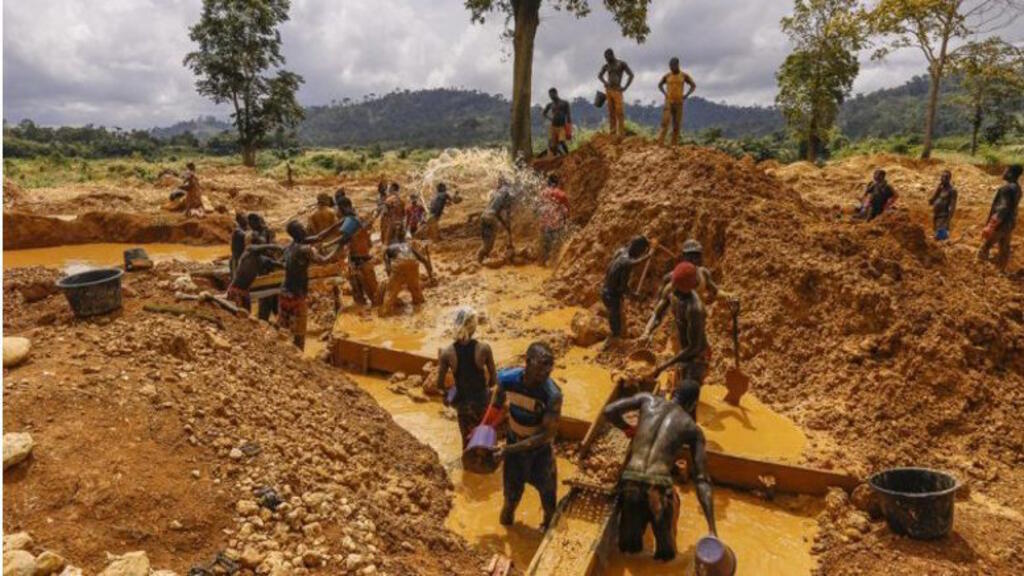
The Pharmaceutical Society of Ghana (PSGH) has labelled illegal mining, commonly known as galamsey, a “public health emergency,” warning that the country faces severe and escalating health threats beyond the well-documented environmental and economic consequences.
The society’s declaration marks a significant shift in how the crisis is framed.
By positioning the issue within the health sector’s domain, PSGH is drawing attention to the often-overlooked medical consequences of galamsey, including mercury poisoning, respiratory illnesses, and the spread of waterborne diseases.
The emergency designation implies an urgent need for intervention.
Mercury contamination in water supplies has been linked to neurological damage, especially in children and pregnant women, while heavy metals from mining runoff accumulate in crops and fish consumed by local communities.
Residents living near mining sites are also increasingly reporting respiratory conditions due to prolonged exposure to chemical fumes and dust.
“These health consequences have been documented for years,” the society noted, adding that the situation appears to be worsening or that previous responses have been insufficient. The declaration elevates healthcare professionals as key stakeholders in national policy discussions, not just environmental campaigners or regulatory agencies.
PSGH’s announcement coincides with intensifying national debate on galamsey.
Universities, civil society groups, and traditional leaders have all called for coordinated action, and recent protests have highlighted the devastating impact of illegal mining on local communities and ecosystems.
Alongside the emergency declaration, PSGH is advocating for the integration of over 5,000 community pharmacies into Ghana’s primary healthcare system. Many of these pharmacies already act as informal first points of care, particularly in rural and underserved regions where hospitals and clinics are scarce.
Formalising their role could enable pharmacists to conduct basic screenings, manage chronic illnesses, educate the public on health risks, and refer patients to specialised care.
However, this would require new policies on compensation, liability, and coordination with the Ghana Health Service, as well as adjustments to the National Health Insurance Scheme, which currently does not reimburse pharmacies for primary care services.
The PSGH’s statement stops short of detailing specific reforms it wants implemented following the emergency declaration.
It remains unclear whether it is calling for enhanced health screenings in mining areas, stricter environmental health enforcement, public awareness campaigns, or expanded treatment capacity for heavy metal exposure.
Critics say that without concrete proposals, the declaration risks being seen as symbolic.
Still, it underscores the urgent need to address galamsey’s health impacts, which healthcare workers in mining regions have long documented but lacked institutional support to confront.
The government’s response will now determine the significance of PSGH’s intervention.
If it spurs action such as nationwide health impact assessments, targeted disease surveillance, or regulatory reform, it could reshape how Ghana tackles illegal mining.
If not, the declaration may remain a powerful statement without tangible outcomes.
PSGH’s bold move reframes galamsey as more than an environmental or economic crisis — portraying it instead as a mounting public health disaster that demands immediate, coordinated national action.



